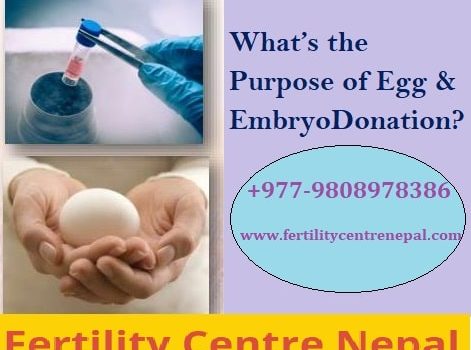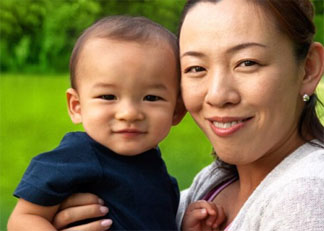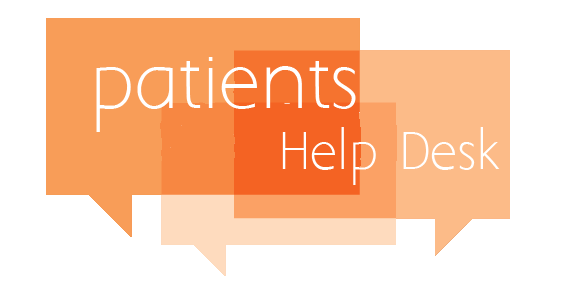What’s the Purpose of Egg and Embryo Donation?
Category : blog
Egg and embryo donation are the two ways to help the infertile couple in conceiving a baby, using donors.
Egg donation is a procedure in which the eggs from another woman are fertilized with the sperms of an intended father in a laboratory and the resulting embryos are then transferred to the uterus of the intended mother.
Embryo donation is a process in which another couple’s embryo is implanted in the uterus of the intended mother during IVF. Embryo donation is for the couples where both partner needs egg and sperm donation, or it can be used by a single woman who cannot use her own eggs.
How the procedure of an egg and embryo donation does works?
The process of egg and embryo donation starts with finding a healthy and fertile donor whom couples can find at Fertility Centre Nepal as we have a large database of egg and embryo donors.
Egg donations procedure can be performed using egg donors or egg sharers:
• Egg donors are women who donate their eggs to an infertile woman and they are not receiving any fertility treatment themselves. They just choose to donate their eggs to help other women to whom they might don’t know.
• Egg sharers are women who will be undergoing for fertility treatment and will donate some of their eggs as part of their IVF cycle.
Embryos donation is usually done by the couples or women who successfully have their babies with them and they wish to donate their left-over embryos from their IVF cycle to other couples who wish to start their family.
The egg and embryo donors are paid for their services by Fertility Centre Nepal as they are doing great jobs and helping the couples in conceiving their babies.
The fertility experts at Fertility Centre Nepal hire the egg donors under the age of 30 years because the chances of pregnancy are more with younger eggs as compared to the older ones.
We at Fertility Centre Nepal properly examine and screened all egg donors for infectious diseases such as HIV, hepatitis B, hepatitis C, and some genetic conditions such as cystic fibrosis, before they donate their eggs to someone else. Also, we provide the egg donors who are closely matched with the recipient couple for characteristics such as her color of hair, eye color, occupation, etc.
In the cases of egg and embryo donation, the woman who is giving birth to the child is a legal mother. Your partner will be the other legal parent if you are married or in a civil partnership. If not, then you need to sign legal parenthood consent forms before we proceed with egg or embryo donation procedure.
How fertility experts perform egg and embryo donation procedures?
a) Embryo Donation: During IVF the extra embryos get developed which the couples can use in their future if they want more children. These embryos are usually kept in storage for up to 10 years. Sometimes couples decide that they do not want more children and decide to donate their embryo to the clinic to help other couples in conceiving a baby.
If you are the recipient of the donated eggs then your fertility expert will transfer only one or two embryos from the donated embryo into your uterus through your cervix by using a thin fine tube called catheter. This process will happen between two and six days after fertilization.
If more than two embryos are transferred then there is a chance of risk of having multiple pregnancies. Your fertility expert will discuss with you about the number of embryos he/she will transfer so that you will be able to achieve the success against the risk of multiple pregnancies.
If everything goes well then at least one of the embryos will stick to your uterine wall and continue to grow. You need to visit Fertility Center Nepal for pregnancy test after two weeks of embryo transfer. If you do become pregnant through embryo donation then your fertility expert will monitor the growth of the fetus in your womb carefully until the baby delivery.
b) Egg Donation: Egg donation is a process where your and egg donor monthly cycles need to be synchronized. After that, the fertility expert both will give hormones to make sure this happens. This hormone will be given so that at around the time your womb lining is able to support an embryo and your donor needs to be ovulating at that particular time.
The fertility expert will give some fertility drugs to egg donor as well so that she will be able to proceed more healthy and mature eggs for fertilization. When the eggs are ready, the fertility expert will remove them using a fine hollow needle.
On the same day when the eggs are collected from your donor, your partner needs to provide a semen sample which will be mixed with the donor eggs in a laboratory if you opted for standard IVF. Or if opted for ICSI then one active sperm of your partner is injected into each egg. Two days later, any fertilized eggs become a ball of cells called an embryo.
Your fertility expert then transfers this embryo into your womb through your cervix by using a fine this tube called catheter. This happens between two days and six days after fertilization. As donors are under the age of 30 years, it has been recommended that only one embryo need to be transferred in the uterus of intended mother to avoid multiple pregnancies.
What are the advantages of using an egg or embryo donor?
The advantages of using donor eggs and embryo are for those couples who are unable to produce healthy eggs and hence they are not able to conceive a baby naturally. By using donated eggs or embryo will increase your chances of conceiving a baby. According to the study, the success rates for donor egg and embryo IVF is high as compared to regular IVF because donor eggs are always from young women.














